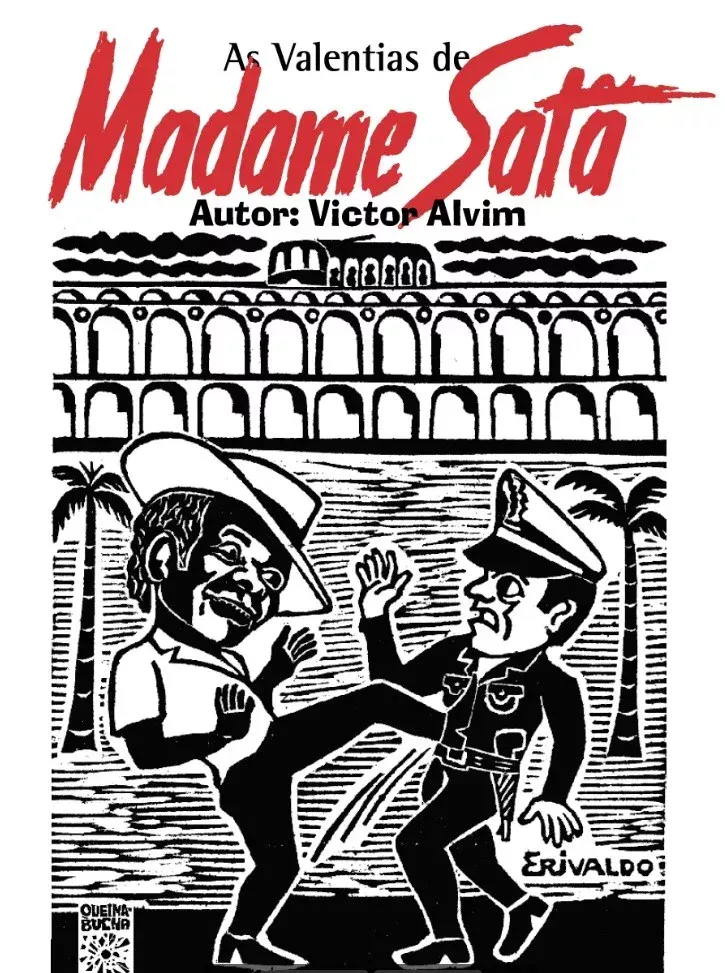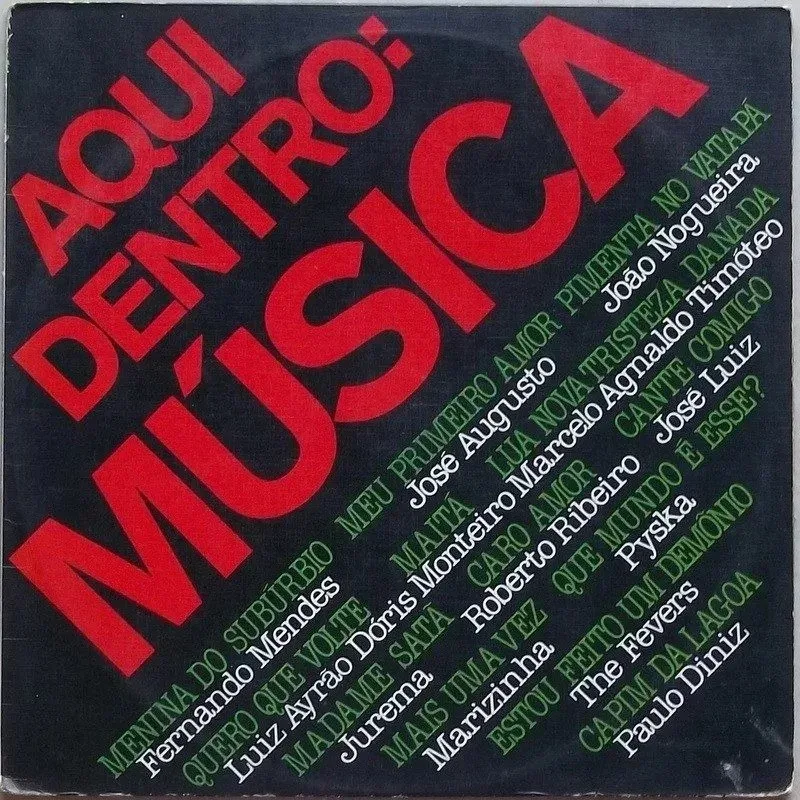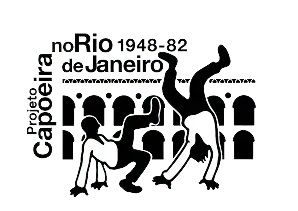
Madame Satã is a singular character in the capoeira universe of Rio de Janeiro. He represents, better than anyone else, the capoeiragem of the old malandros, whilst, at the same time, he influences the modern capoeira that is developing during the 1950s and 1960s in Rio de Janeiro. Capoeira had disappeared from the streets of the city after the police chief Sampaio Ferra carried out a great purge of the gangs (maltas) at the beginning of the first Republic, in 1889-1890. Some of its corporal techniques and musical culture survived in the pernada carioca. Yet its most dangerous kicks were only trained in hidden places, on some hills and popular neighbourhoods, to be used only in street fights by tough guys (valentões) like Madame Satã. Madame Satã became famous for his fights against policemen and his feats impressed a whole generation of capoeiristas.
Madame Satã also represents many of the contradictions of the society in which he lived. He was practically enslaved as a child and had to survive in the streets and also in prison, where he spent many years of this troubled life. His sexual orientation exposed him to constant abuse in the homophobic environment in which he lived. As he explains in his autobiography, many men could not accept that a queer (bicha) could also be a tough guy. This resulted in constant provocations from heteronormative men, many of which were from the police, resulting in repeated fights and much harassment. Madame Satã nevertheless became a hero during the 1970s for the alternative press like O Pasquim and some capoeiristas who were impressed by his achievements.
The cordel
At this time, when we are trying to rescue the rich history of capoeira in Rio de Janeiro, it is only fair to pay homage to Madame Satã in the form of this cordel by Victor Alvim, o Lobisomem [The Wolf Man], the poet who gave us the verses in cordel As Valentias de Madame Satã.
Read the cordel specially produced for the CapoeiraHistory.com project! Besides Lobisomem’s verses, the work brings on the cover a woodcut by Erivaldo. Enjoy!

Download here!
The complete text of the cordel As Valentias de Madame Satã, by Victor Alvim.

Post and video!
The Lobisomem post also features the first part of the video with the poet reciting his cordel.
The video
Author of several titles in cordel literature, Victor Alvim wrote for CapoeiraHistory the post The adventures of a capoeira in the magical realm of cordel literature, where he talks about his creative process and his publications.
In the post you will also find the first part of the video with the reading that the poet made of his cordel As aventuras de Madame Satã, on the occasion of the launch of the website CapoeiraHistory.com, at the National Center of Folklore and Popular Culture, in 2019.
The character
CapoeiraHistory also thanks Geisa Rodrigues, author of the most complete study about Madame Satan.
She wrote an introductory text especially for the site, Madame, the Satan of Lapa Disctrict, which you can check here.

Read here!
Madame, the Satan of Lapa District is the text by Geisa Rodrigues available for you!

To listen!
Madame Satã, samba by Totonho and Paulinho Rezende, recorded by Jurema, in 1977.
Here’s a hint!
The researcher and capoeirista Rouxinol recommended that we listen to Madame Satã, samba by Totonho and Paulinho Rezende, beautifully recorded by Jurema, on the compilation Aqui dentro: música, LP from 1977. We took the opportunity to share the link to DJ Renato Vervloet’s YouTube channel where we located the recording.



Hmm is anyone else having problems with the images on this blog loading?
I’m trying to determine if its a problem on my end or if it’s the blog.
Any responses would be greatly appreciated.